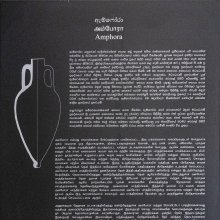Puro: 2 definitions
Introduction:
Puro means something in Hinduism, Sanskrit, the history of ancient India. If you want to know the exact meaning, history, etymology or English translation of this term then check out the descriptions on this page. Add your comment or reference to a book if you want to contribute to this summary article.
Images (photo gallery)
India history and geography
Source: What is India: Epigraphia Indica volume XXXI (1955-56)The word puro, prefixed to the official designation, may be the same as Sanskrit pura and the inspector may have been attached to the capital city ; but it may also be the same as Sanskrit puras suggesting that the officer in question was the chief of his class.

The history of India traces the identification of countries, villages, towns and other regions of India, as well as mythology, zoology, royal dynasties, rulers, tribes, local festivities and traditions and regional languages. Ancient India enjoyed religious freedom and encourages the path of Dharma, a concept common to Buddhism, Hinduism, and Jainism.
Languages of India and abroad
Sanskrit dictionary
Source: Cologne Digital Sanskrit Dictionaries: Monier-Williams Sanskrit-English DictionaryPuro (पुरो):—[from pur] in [compound] for puras.
Sanskrit, also spelled संस्कृतम् (saṃskṛtam), is an ancient language of India commonly seen as the grandmother of the Indo-European language family (even English!). Closely allied with Prakrit and Pali, Sanskrit is more exhaustive in both grammar and terms and has the most extensive collection of literature in the world, greatly surpassing its sister-languages Greek and Latin.
See also (Relevant definitions)
Starts with (+131): Puravagni, Puro-nayaka, Puro-pariksha, Puro-pratihasta, Puro-shrikarana, Puroagni, Purobalaka, Purobhaga, Purobhagi, Purobhagin, Purobhakshika, Purobhakta, Purobhaktaka, Purobhavin, Purobhivriddhi, Purobhu, Purocana, Purochana, Puroci, Purocu.
Ends with: Apuro, Juthopuro, Mprampuro, Purpuro, Ramokorpuro, Vishnupuro.
Full-text (+142): Purobhagin, Purogama, Purodashiya, Purogati, Puroga, Purohita, Purogamin, Purodasha, Purodashya, Purodhaniya, Purokitam, Purovatasani, Puravagni, Purohavis, Purorugadhyaya, Purojanmata, Purohiti, Purodashika, Purorunmat, Purohitika.
Relevant text
Search found 29 books and stories containing Puro, Purō; (plurals include: Puros, Purōs). You can also click to the full overview containing English textual excerpts. Below are direct links for the most relevant articles:
Rig Veda (translation and commentary) (by H. H. Wilson)
Bhakti-rasamrta-sindhu (by Śrīla Rūpa Gosvāmī)
Verse 3.1.27 < [Part 1 - Neutral Love of God (śānta-rasa)]
Verse 2.1.240 < [Part 1 - Ecstatic Excitants (vibhāva)]
Verse 3.2.73 < [Part 2 - Affection and Service (dāsya-rasa)]
Garga Samhita (English) (by Danavir Goswami)
Verse 5.7.23 < [Chapter 7 - The Killing of Kuvalayāpīḍa]
Verse 5.19.13 < [Chapter 19 - The Festival on Śrī Kṛṣṇa Return]
Verse 4.9.20 < [Chapter 9 - The Glories of Srī Ekādaśī]
Warfare and Military System in Vedic Literature (by Rinki Deka)
Fortification and Siegecraft < [Chapter 2 - Military System as Revealed in the Vedic Texts]
The Status of the Royal Priest and His Characteristics < [Chapter 3 - The Religious observances and other Beliefs related to the Warfare]
The Deployment of Battle Array and Camps < [Chapter 4 - Principles and Ethics related to the Warfare]
Vedic influence on the Sun-worship in the Puranas (by Goswami Mitali)
Part 35 - Symbolic relevance of “Etaśa” in Sun-worship < [Chapter 2 - Salient Traits of the Solar Divinities in the Veda]
Part 8 - The Concept of God in the Light of the Vedas < [Chapter 1 - Vedic Concept of God and Religion]
Part 10 - Characteristics of the Vedic Gods < [Chapter 1 - Vedic Concept of God and Religion]
Brihad Bhagavatamrita (commentary) (by Śrī Śrīmad Bhaktivedānta Nārāyana Gosvāmī Mahārāja)
Verse 1.7.27 < [Chapter 7 - Pūrṇa (pinnacle of excellent devotees)]
Verse 2.4.18 < [Chapter 4 - Vaikuṇṭha (the spiritual world)]
